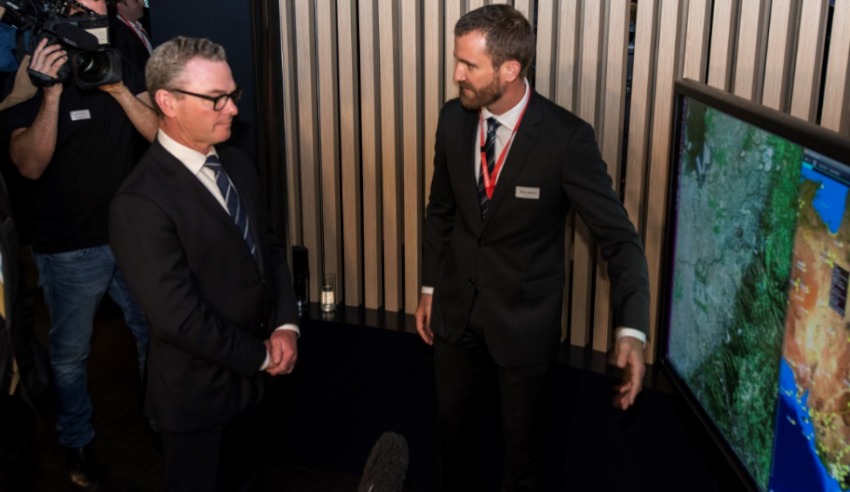Lockheed Martin Australia recently opened the doors of its new state-of-the-art Endeavour Centre to showcase the work of Australian defence industry specialist Silentium Defence.
The Endeavour Centre is a high tech facility providing a shared space for innovation and technology developments in Defence. It was officially opened on 19 February in Canberra and is already providing opportunities for exploration and innovation with key industry partners.
And it was for just this purpose that the Endeavour Centre recently hosted a stakeholder event in March with key Defence and national security leaders to showcase the work of Silentium Defence
Silentium Defence has been making a major splash in defence and cyber security circles with their unique and breakthrough technology offerings. In a defence environment that is transitioning to fifth generation capability, having the solutions to join up and integrate cross-platform information sources is more important than ever.
The Australian government’s AIR 6500 program will deliver a Joint Battle Management System (JBMS) that will present decision makers with a common operating picture gathered from disparate platforms, systems and sensors operating across the air, land, sea, space, electromagnetic and cyber domains. Technology offerings such as those developed by Silentium Defence may play a critical role in providing critical shared situational awareness of the future battlespace environment.
Founded by James Palmer and Simon Palumbo, Silentium Defence specialises in the design, engineering and development of passive radar systems, allowing defence forces to maintain their situational awareness without advertising their presence. They are a brand-new start-up in Adelaide, coming off the back of 10 years of R&D within Defence Science and Technology (DST) Group.
The Silentium Defence radar system works by detecting and tracking objects by taking advantage of energy already in the environment, such as broadcast TV and radio waves, whereas traditional radars use large bursts of self-generated radio energy that can alert adversaries to a unit's position.
“An active radar is not unlike a lighthouse in that it works by sending out a big blast of energy,” says Palmer. “The active radar listens to echoes from that energy to work out what is around it. As with the lighthouse that big blast of energy means it is obvious to everyone in the vicinity. Our technology means you do not need to send out a new blast of energy and can instead use sources of energy that are already in the environment. Using these existing high powered signals, we can listen for the echoes to create a radar picture that can be used for situational awareness. Having this picture and feeding it into the Defence backbone, you can contribute to a clear operational strategic environment.”
“Lockheed Martin Australia has been very supportive of Silentium Defence. They are helping us to reach our key audiences and demonstrate our capabilities. Opportunities like this one at the Endeavour Centre, help us to engage with potential customers and ultimately develop business for our solutions, and that is how you develop and export sovereign capability.”
Lockheed Martin Australia is committed to fostering Australian industry to help deliver the major programs and systems for Australia’s defence. Partnership is at the core of how we work with governments, academia and industry to raise the technology base in Australia and to help develop innovative solutions required for programs like AIR 6500.
Our programs and projects support thousands of Australian industry jobs and our investment in local partnerships support growth and innovation across Australian industry. We have mentored Silentium Defence from start-up and we are focused on helping them to grow that into an opportunity.









